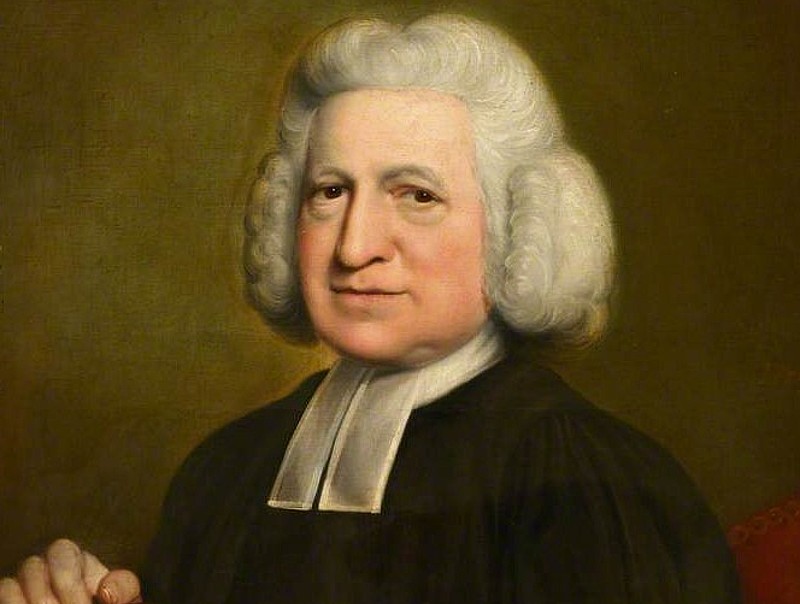
Portrait of Charles Wesley by John Russell, 1771.
By Elliott Brack
Editor and Publisher, GwinnettForum
DEC. 24, 2024 | It was in Savannah in the early days of Georgia, that German-born Moravian Peter Böhler said to Charles Wesley: “If I had a thousand tongues, I would praise Christ with them all.” That gave rise to the first line of the classic hymn, “Oh for a thousand tongues” often heard at Christmas. Böhler was Charles Wesley’s spiritual mentor in the colony of Georgia.
![]() Charles Wesley (1707-1788) may be called the father of Methodist congregational singing. Searching the internet, and in particular, Wikipedia, we learn more about Charles Wesley, after writing about John Wesley in the previous GwinnettForum.
Charles Wesley (1707-1788) may be called the father of Methodist congregational singing. Searching the internet, and in particular, Wikipedia, we learn more about Charles Wesley, after writing about John Wesley in the previous GwinnettForum.
Charles disliked the prevalence of the psalms in worship songs of his time. Out of that, he gave Methodism and modern hymnody many original hymn texts. He wrote“O for a Thousand Tongues to Sing,” for Sunday, May 21, 1739—the first anniversary of his conversion on Pentecost Sunday, or Whitsunday as it was known then. The conversion had preceded by three days John Wesley’s famous reaffirmation of his faith at Aldersgate Chapel.
The hymn was first published in A Collection of Hymns for the Use of the People Called Methodists (1780). The significance of this hymn in the Methodist tradition is symbolized by its appearance as the first hymn in the United Methodist Hymnal (1989).
To further heighten the emotional nature of the poem, Wesley punctuates words like “Jesus” and the last words of phrases with an exclamation point. Other poetic devices used to express the incredible nature of salvation include the oxymorons present in stanza six: “Hear him, ye deaf; his praise, ye dumb, your loosened tongues employ; ye blind, behold your savior come, and leap, ye lame, for joy.”
The original hymn had 18 stanzas. The seventh stanza became the first stanza of the hymn that we now know.
Putting the words to music was German born Carl Gothelf Gläser (1784-1829). Gläser was a German composer and contemporary of Beethoven.
Here are the words so beautifully put together in modern hymnals.
1 O for a thousand tongues to sing
my great Redeemer’s praise,
the glories of my God and King,
the triumphs of his grace!
2 My gracious Master and my God,
assist me to proclaim,
to spread thro’ all the earth abroad
the honors of your name.
3 Jesus! the name that charms our fears,
that bids our sorrows cease,
’tis music in the sinner’s ears,
’tis life and health and peace.
4 He breaks the power of cancelled sin,
he sets the prisoner free;
his blood can make the foulest clean;
his blood availed for me.
5 To God all glory, praise, and love
be now and ever given
by saints below and saints above,
the Church in earth and heaven.
Thank you, Charles Wesley.
- Have a comment? Click here to send an email.









Follow Us